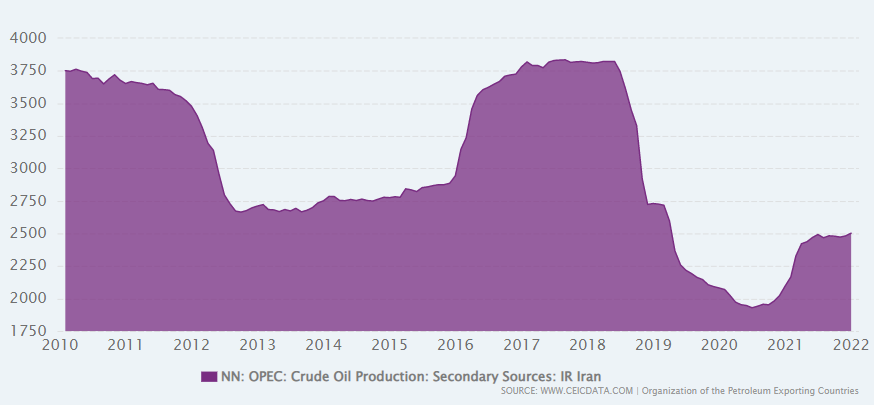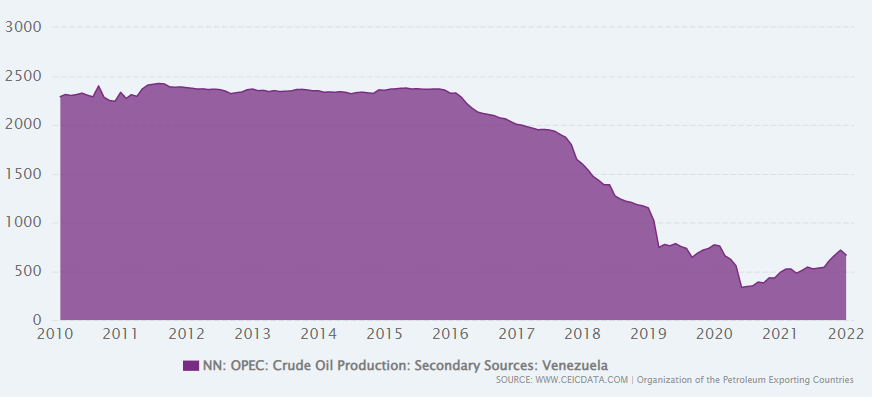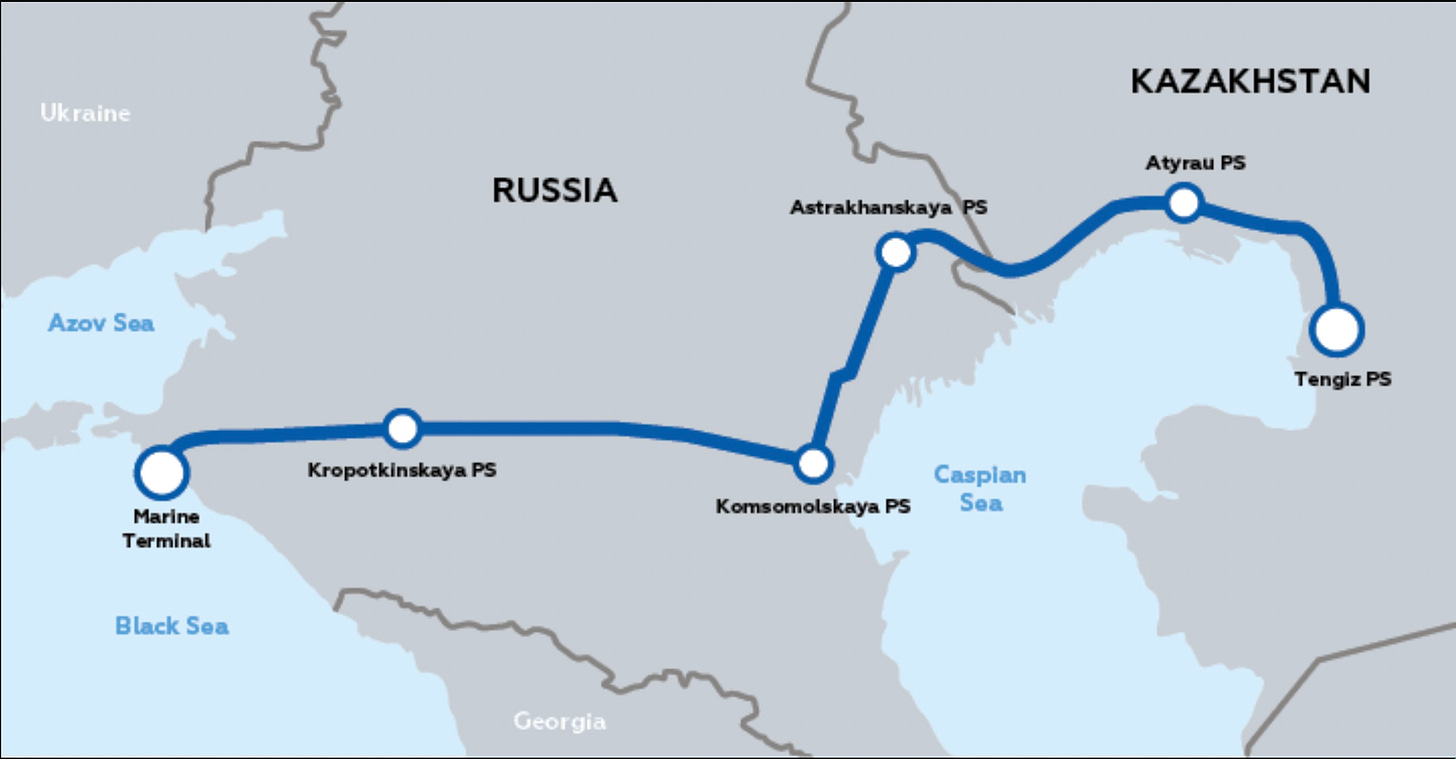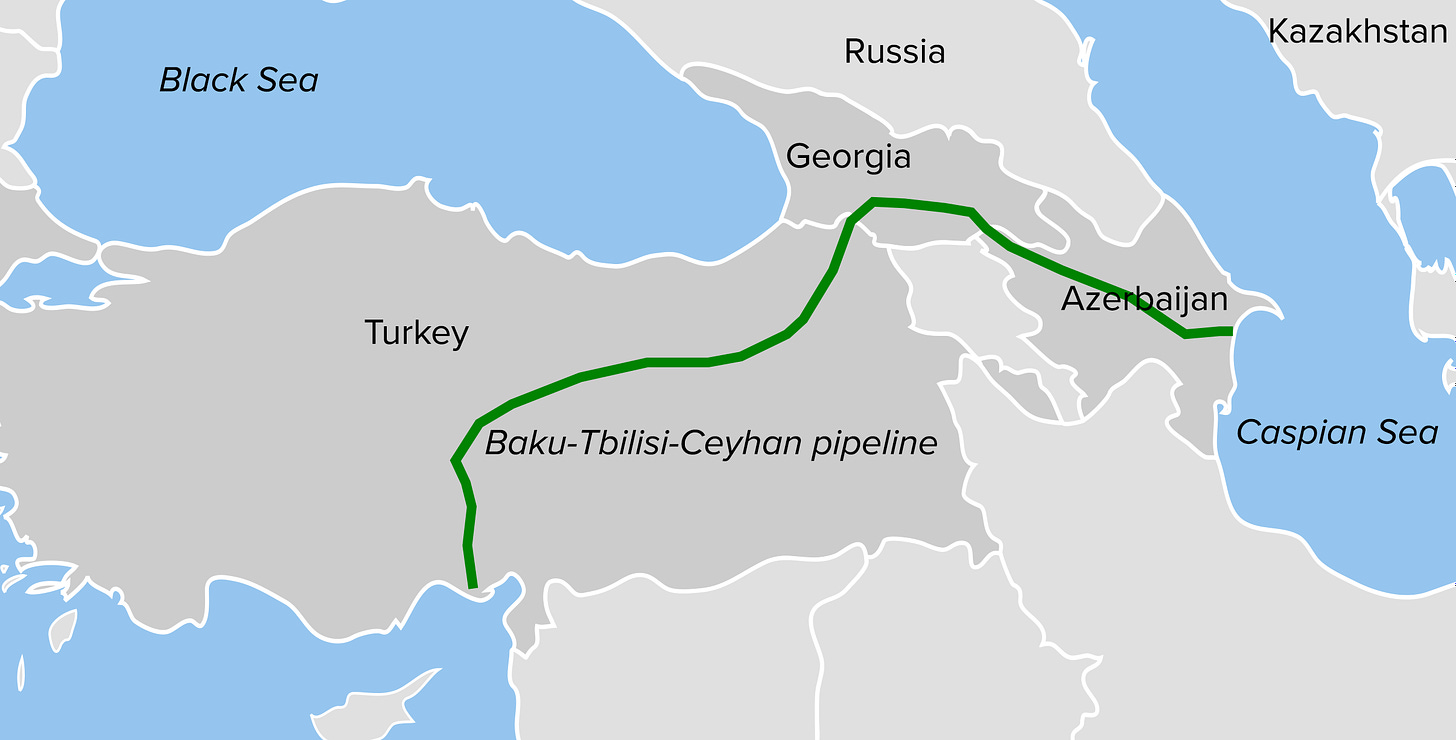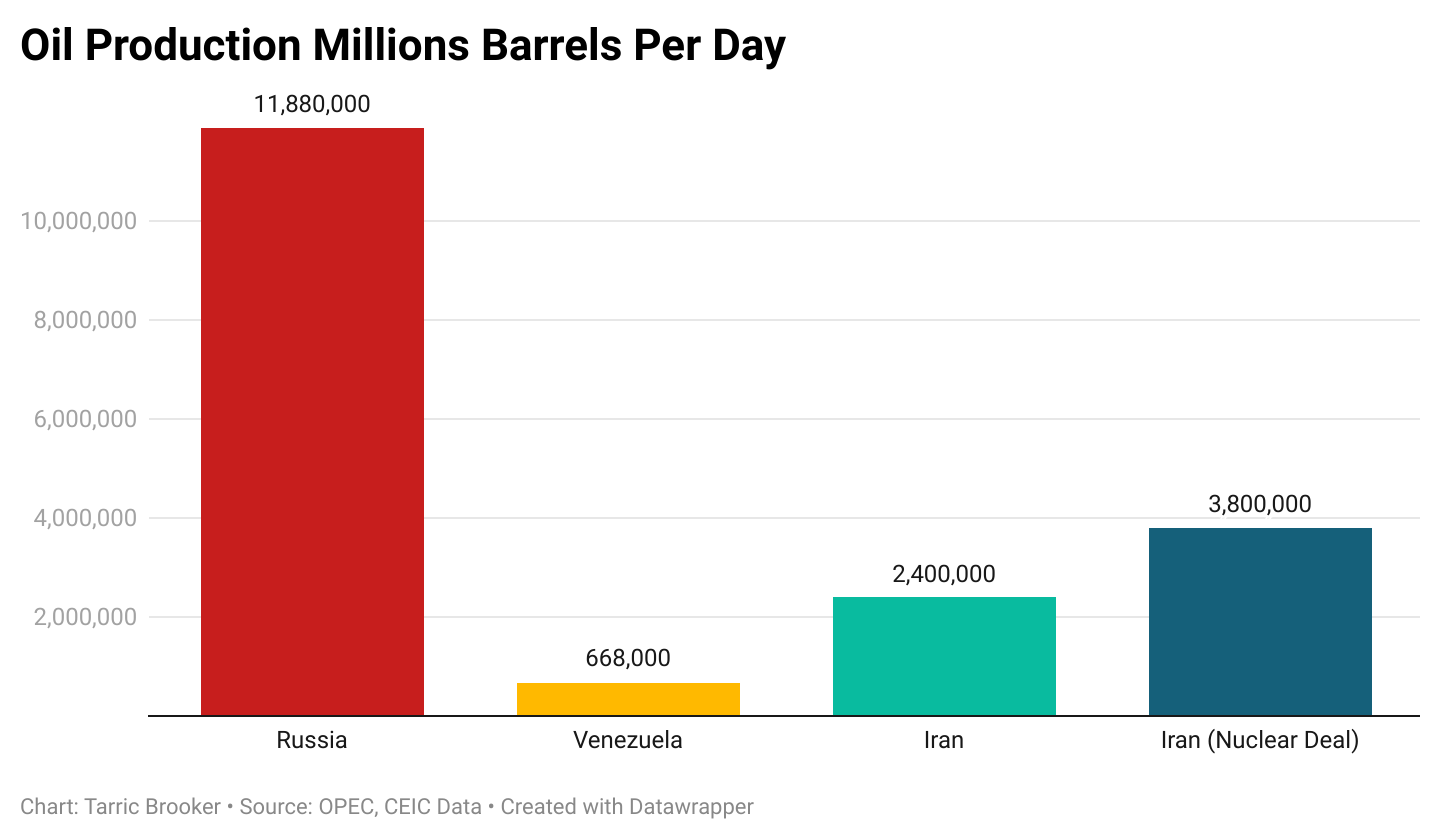Venezuelan and Iranian Oil cannot replace Russia - A Brief Note
After years of degrading oil production capabilities, things are not so simple
As speculation continues to build over a potential embargo by the West on Russian oil and gas exports, the Biden administration has been swiftly attempting to find some form of alternative to the West’s reliance on Russian energy.
Over the weekend senior U.S officials secretly travelled to Venezuela in an attempt to improve relations with the government of President Nicolas Maduro. This is quite the ironic development, given that the United States and its allies imposed hard hitting sanctions on Venezuela for years and supported opposition figure Juan Guaidó’s claims that he was the rightful President.
Meanwhile the U.S has also been pursuing a new nuclear deal with Iran, which could see Tehran and its oil welcomed back into the international community.
As late as last week it was believed that a renewed agreement was imminent, but that has since been thrown into doubt.
But for a moment lets hand wave away all the bad blood, geopolitical rivalries and other issues, to imagine a scenario in which Venezuelan and Iranian oil were brought back to the market.
According to Iranian Oil Minister Javad Owji, if sanctions are lifted, Iran would raise its oil production by 1.4 million barrels per day, from 2.4 million to 3.8 million.
This would bring Iranian oil production to roughly inline to where it was when the previous nuclear deal was in place.
Despite holding the largest oil reserves in the world, bringing Venezuelan oil back into the global market is significantly more challenging.
Since 2016 Venezuelan oil production has collapsed from a 20 year average of around 2.3 million barrels per day to just 668,000 barrels per day in January 2022.
Sanctions have naturally been the driving force behind this decline in production, but the problems with Caracas’ oil infrastructure run far deeper.
Unlike Iran which has the infrastructure ready to go in a relatively short period of time, years of neglect, corruption and even outright theft of pipeline materials for scrap metal value has left Venezuela’s oil infrastructure in a sorry state.
According to a recent analysis by Francisco J Monaldi from the Baker Institute for Public Policy in Latin American Energy, it would take $10 billion to $12 billion per year over a decade to lift Venezuelan oil production back to its former peak of 2.5 to 3 million barrels per day.
Considering that the Venezuelan government has previous nationalized the assets of foreign companies and a fair amount of animosity exists between Caracas and Washington, getting companies or government to commit to that level of investment over that type of time period would be challenging to say the least.
Unintended Consequences
There is also the issue Kazakh oil being inadvertently cut off from global markets due to it being transported through pipelines to the Russian Black Sea port of Novorossiysk. Differentiating between Russian and Kazakh oil in that instance would be at best extremely challenging.
While there are other avenues for Kazakh oil exports such as shipping the oil via tanker to Azerbaijan and then piping it through Georgia and Turkey to customers on the Mediterranean coast.
However, even if enough tanker capacity in the Caspian Sea could be found (a big if), this avenue may not prove sufficient for the world’s tenth largest oil exporter to get its produce to its customers.
The Elephant In The Room
According to the most recent data from OPEC, Russia produced 11.88 million barrels per day during Q4 2021. With Russia accounting for around 10.5% of global oil exports, its not a source that can be switched off as much as some want it to.
While the resumption of 1.4 million barrels a day in Iranian oil production would provide some support for global supplies, its no where near enough to offset the loss of Russian exports.
Ultimately, Iran and Venezuela may help plug gaps in the market somewhat, but in the end they don’t have the capacity to replace Russia.
While the West may end up trying to remove Russian energy from its energy mix, it would be a painful and Herculean task to accomplish.
— If you would like to help support my work by donating that would be much appreciated, you can do so via Paypal here or via Buy me a coffee. Thank you for your readership.




